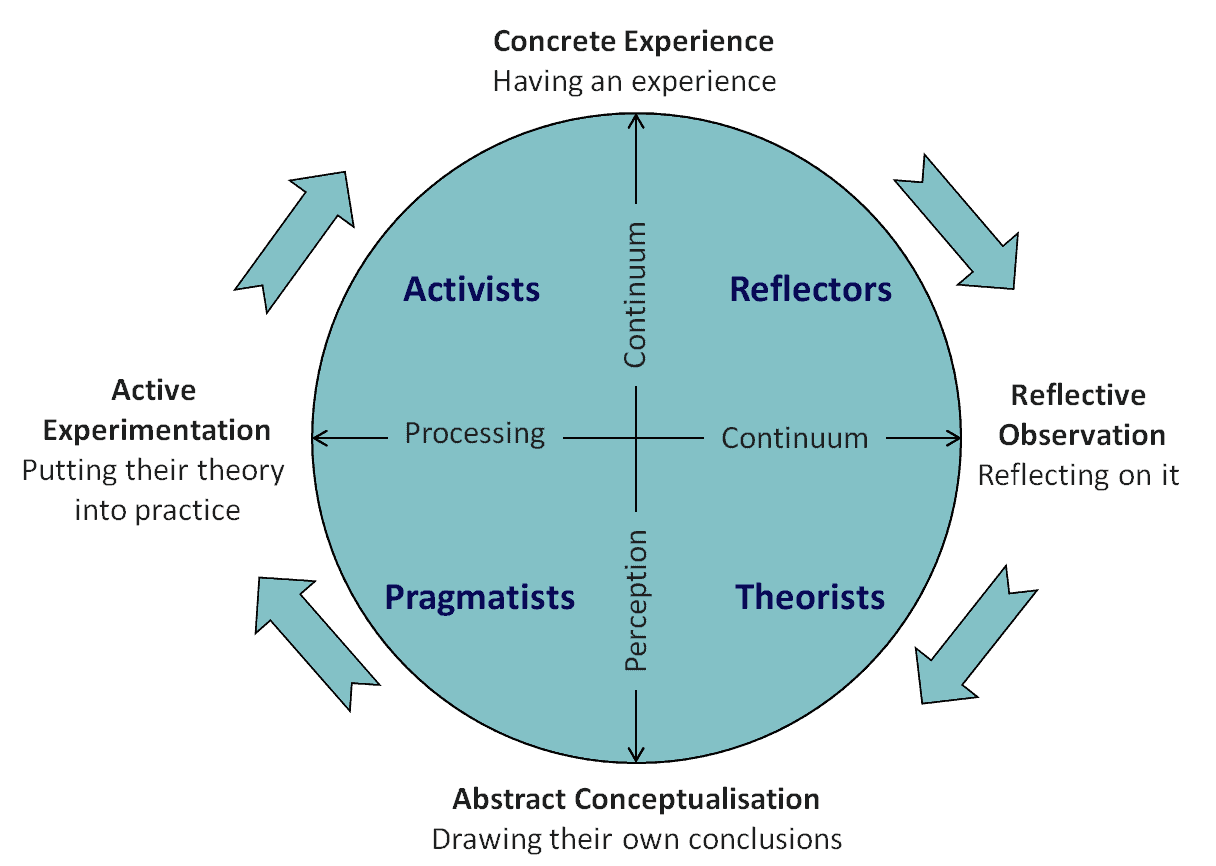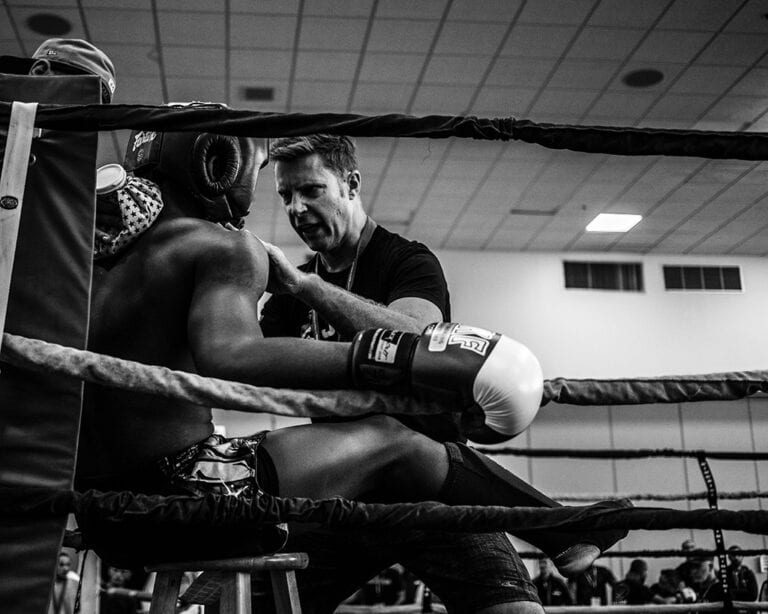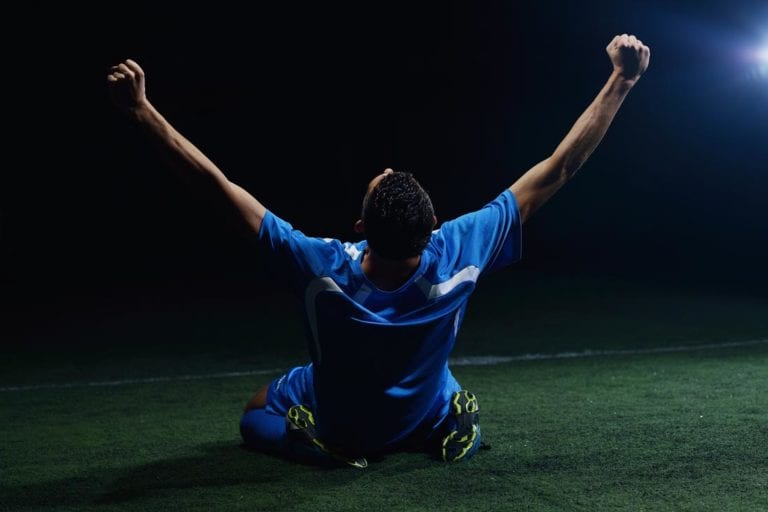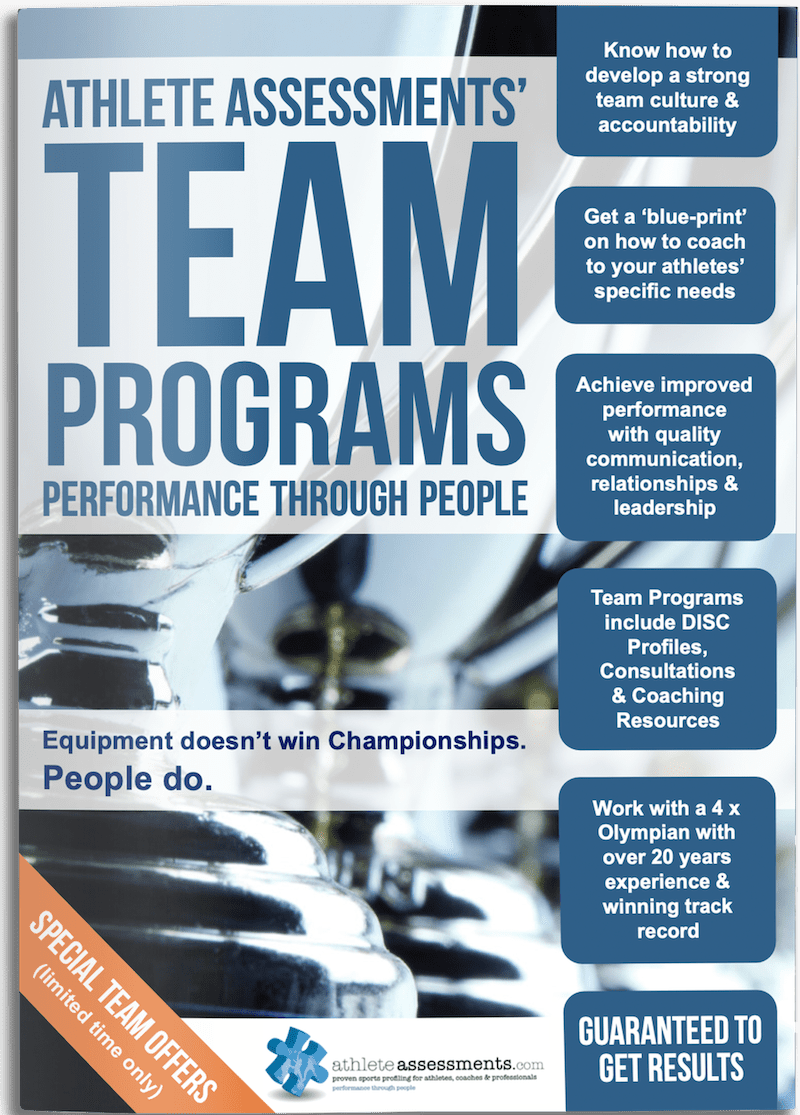Have you ever noticed how some athletes “get” instructions immediately, while for others it takes a while for things to click? If you’re involved in coaching this is something you’ve had to deal with on numerous occasions. Many coaches develop their own ways of working with their athletes learning styles and having a well-proven framework can be extremely useful. We understand all athletes are unique and cannot be coached in exactly the same way because as athletes (and people in general) everyone has their own unique way of learning.
Why Teach to the Athletes’ Learning Styles
Being able to adjust how you “teach” to suit the individual needs of your athletes is a hallmark of great coaching. When coaches adapt their “teaching” it comes down to adapting to the different “learning styles” of their athletes. Put simply, a learning style is a preferred way of taking in and processing information in order to develop knowledge and skill.
As coaches, the first step is to understand your own learning style. Your own learning style effects how you structure and create learning opportunities for others, as we commonly work in a framework that works for ourselves. Being aware of our own tendencies helps us to make conscious choices about how to maximize the learning opportunities we have with our athletes. Whilst athletes should have a basic understanding of how they learn best, in reality most athletes have very little knowledge about their learning style. When an athlete is unaware of their learning style it often leads to them being clueless about what, why and how the coach is trying to teach them. This can result in frustration for both the coach and athlete and eventually, a decline in performance is inevitable.
The best news is that the opposite situation is also true. When an athlete knows how they learn best, they are able to take an active part in creating more opportunities for this to happen. In addition, coaches who know the different learning style preferences are able to include every style in their practice sessions, thereby meeting the needs of the entire athlete group.
Different Athlete Learning Styles
As mentioned earlier, a learning style is a preferred way of taking in and processing information in order to develop knowledge and skill. Internationally regarded experts in this field are Honey and Mumford from the UK. Their model includes four different learning styles (or stages) with each person having their own preference of a combination of the four different styles. As their research has shown, by understanding your own learning style preferences and by developing your non-preferred learning styles, you can learn more efficiently and effectively.
Their theory suggests there are four stages in learning (Activist, Reflector, Theorist and Pragmatist) and each stage follows on from another. These stages are also considered learning styles, so ‘style’ and ‘stage’ can be interchangeable when referring to Honey and Mumford’s work.

Whilst we all have a preferred learning style, an individual does not just learn in one way, but rather we have a combination of learning styles. Each of us prefer one, two or three of these styles more or less than the other styles. Hence, the style we prefer the most is our learning style preference. As noted earlier, knowing our preferences and further developing our non-preferred learning preferences helps us learn faster and more efficiently. When coaching our athletes, we can therefore strategically create a “learning journey” by leading them through each style of the four stage cycle.
The following sections go through each of the learning styles: the Activist, Reflector, Theorist and Pragmatist.
The Activist Style (or Stage)
Activists are likely to:
- Immerse themselves fully in new experiences,
- Enjoy here and now,
- Be open minded, enthusiastic, flexible,
- Act first, consider consequences later,
- Seek to center activity around themselves.
Our coaching tips for working with “Activist Style Athletes” are:
- Allow them to experiment so they can try different approaches.
- Let them dive into an activity so they can work it out as they go.
- Let them talk about what they are doing and share their experiences of what is and isn’t working for them.
- Give them a variety of drills to address the same technical change you are trying to make.
- Give them some brief key points to think about after the practice session and before the next practice ask them what worked last time and what they aim to do this time.
- After the drill, ask them questions to help them reflect. You can also encourage them to watch a team member who is excellent at that technique.
The Reflector Style (or Stage)
Reflectors are likely to:
- Stand back and observe,
- Be cautious, take a back seat,
- Collect and analyze data about experience and events, slow to reach conclusions,
- Use information from past, present and immediate observations to maintain a big picture perspective.
Our coaching tips for working with “Reflector Style Athletes” are:
- Let them observe the technique in action (they can watch an activist).
- Give them a briefing on what the practice session is going to contain so they can imagine themselves and prepare mentally before they do it.
- Create an environment where it is ok to not be perfect immediately.
- Let them think about and share with others what worked well in the drill after doing it.
- Encourage them to simply have a go, without too much thought – To trust themselves.
The Theorist Style (or Stage)
Theorists are likely to:
- Think through problems in a logical manner, value rationality and objectivity,
- Assimilate disparate facts into coherent theories,
- Be disciplined, aiming to fit things into rational order,
- Keen on basic assumptions, principles, theories, models and systems thinking.
Our coaching tips for working with “Theorist Style Athletes” are:
- Give them reference materials to help them prepare for the theory of what the practice session contains.
- Give them background information as to why particular drills are being used.
- Explain the inner workings of techniques and mechanics of the sport.
- Encourage opportunities to test different theories and to talk to you about different approaches they may have researched.
- Help them verbalize their ideas to fellow team members to include their perspectives and to ensure the theory works in practice.
The Pragmatist Style (or Stage)
Pragmatists are likely to:
- Be keen to put ideas, theories and techniques into practice,
- Search new ideas and experiment,
- Act quickly and confidently on ideas,
- Gets straight to the point,
- Are impatient with endless discussion.
Our coaching tips for working with “Pragmatist Style Athletes” are:
- Make sure the practice session is clearly linked to the game strategy.
- Ensure the practice session is played out in close to a real life sporting environment.
- Ask the pragmatist athlete, how they will use what they have learnt in the next competition.
- Keep their goals in the forefront of your mind when planning sessions.
- Never divert from the proven, practical and realistic techniques that they know work in their world.
Catering for all Learning Styles and Using all Learning Styles
Creating a holistic learning experience means appealing not only to a learner’s preferred style, but importantly enabling the learner to journey beyond their preferences into the other learning styles. This builds the depth of their learning experience and also develops their learning ability.
For example, whilst an athlete may have an activist preference, once the athlete has had the experience (i.e. completed the drill), instead of moving to the next drill too quickly, the coach can ask the athlete a few brief questions relating to the drill to develop another style such as discussing the relevance or application (pragmatist) or direct focus to when they have developed a similar drill (reflector). The point is, asking questions creates a well-rounded learning opportunity and this means a deeper understanding and knowledge starts to develop.
At times, an athlete may go through all four styles in a flash, or over days, weeks or months, depending on the athlete, the learning taking place and of course the effectiveness of the coach.
That is the key element in this equation, how effectively can a coach lead their athlete through each of the styles, thereby increasing the learning experience.
As a coach, you may be inclined to present information in a way that makes sense to your learning style, but maybe not to all your athletes. Knowing we all have our own unique preferences for learning means that:
For coaches, there is a need for adjustment between learner and coach: sometimes the athlete and coach’s preferences are complementary, sometimes antagonistic, and of course sometimes collusive if they both tend to go for the same style in the cycle.
Being unaware of learning styles and what the athlete and coach preferences are, creates space for major neglect of some styles and this can prove to be a major obstacle to learning. Therefore skill and performance improvement is negatively impacted.
Starting with an athletes learning preference and then developing other learning styles within the coaching experience will allow you to build depth and further develops the athletes skills in learning more effectively and efficiently.
Where to from here?
We’ve covered quite a complex topic in this learning styles article and if you have any questions or would like to discuss this further, we’re here to help. Please contact us.
If you’ve enjoyed this article, you may also like to read more about the importance of effective communication. See our article on ‘Delivering Feedback to Your Athletes’.
At Athlete Assessments, we’re here to provide you with excellence in service and here to help you be your best. If there is anything we can assist you with, please contact us.
Recommended Articles
All athletes will perform at a level under their best at some point. How Coaches manage this impacts the athlete’s future performances. Studies into coaching effectiveness continually suggest everything we say and do as a Coach impacts our athlete’s performance. This article provides two simple athlete feedback mechanisms to use with your athletes to ensure their performance improves with your coaching feedback. The first technique is called the feedback sandwich. It is a three step model for giving constructive encouragement and athlete feedback.
“With Quotes from Legends including John Wooden, Michael Jordan, Bud Grant, Bill Walsh, Mia Hamm, Steven Covey, Wayne Bennett, Vince Lombardi, Mae West, and Sue Enquist this compilation has something for everyone.”
Why we recommend it: Bringing together a group of people to forge a high performing team culture is no simple exercise. It doesn’t happen by itself, nor is it a ‘matter of time’. Master coaches understand the intricacies, focus and persistence it takes. Be confident in managing your team’s unique culture, with practical coaching strategies to keep your team on the right track. It can be difficult to find a resource that can effectively guide your team through the potential pitfalls of culture. But this eBook is designed to take you step by step through the four distinct types of culture, and how to coach for these cultures.









